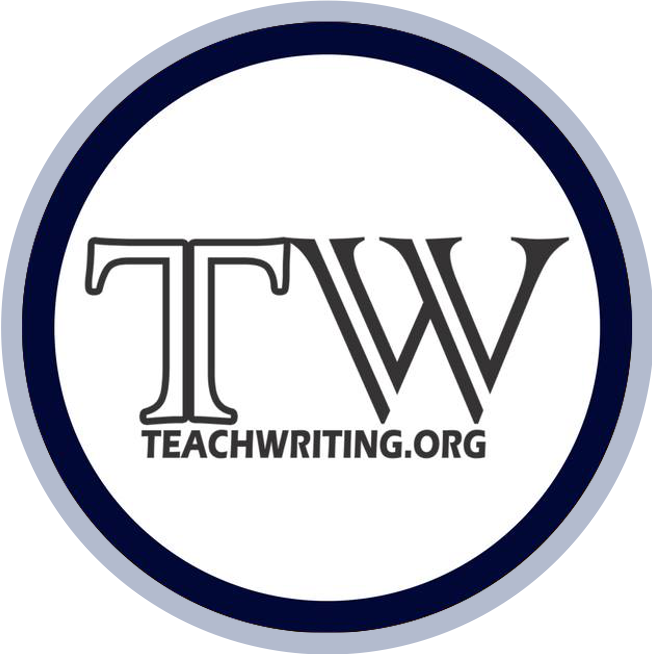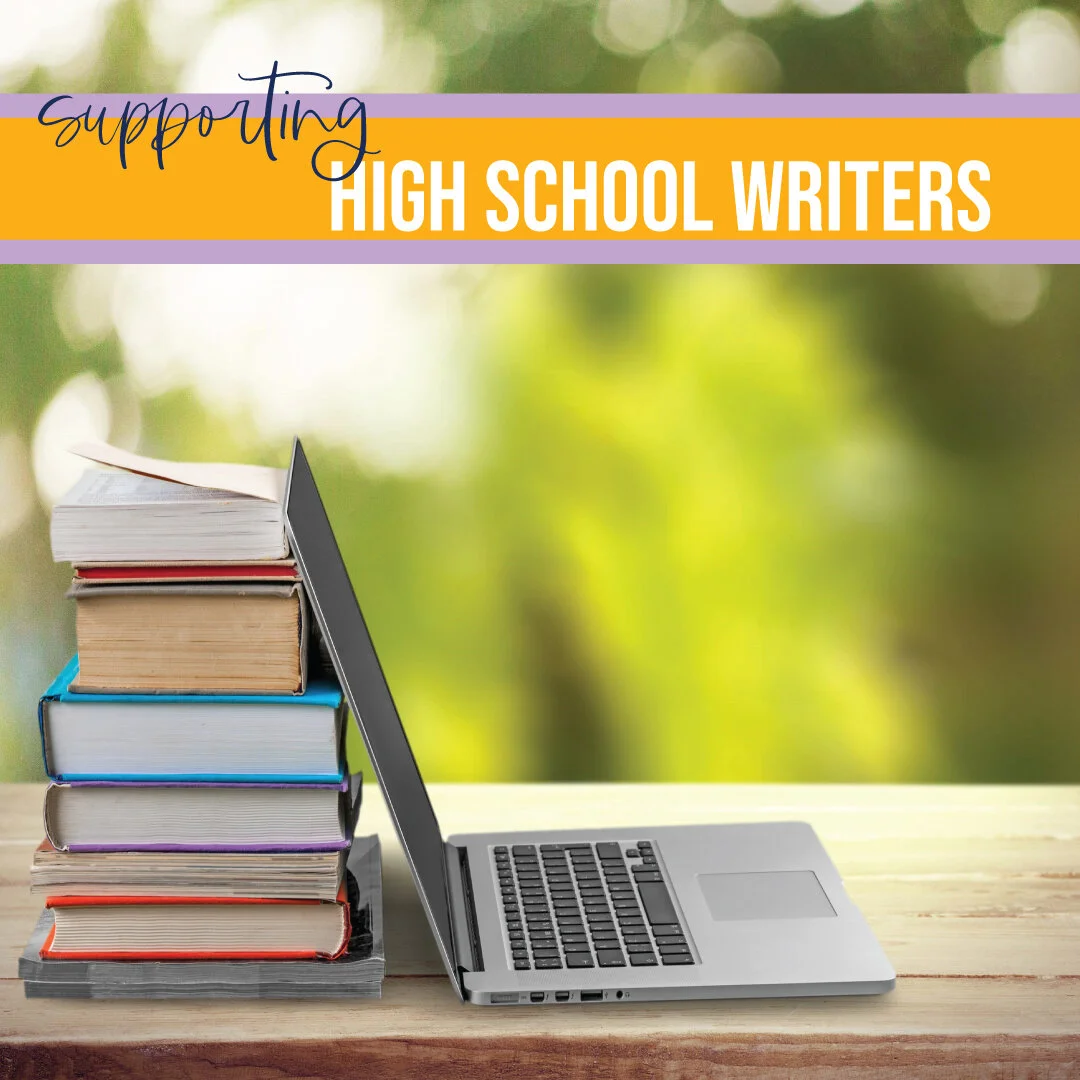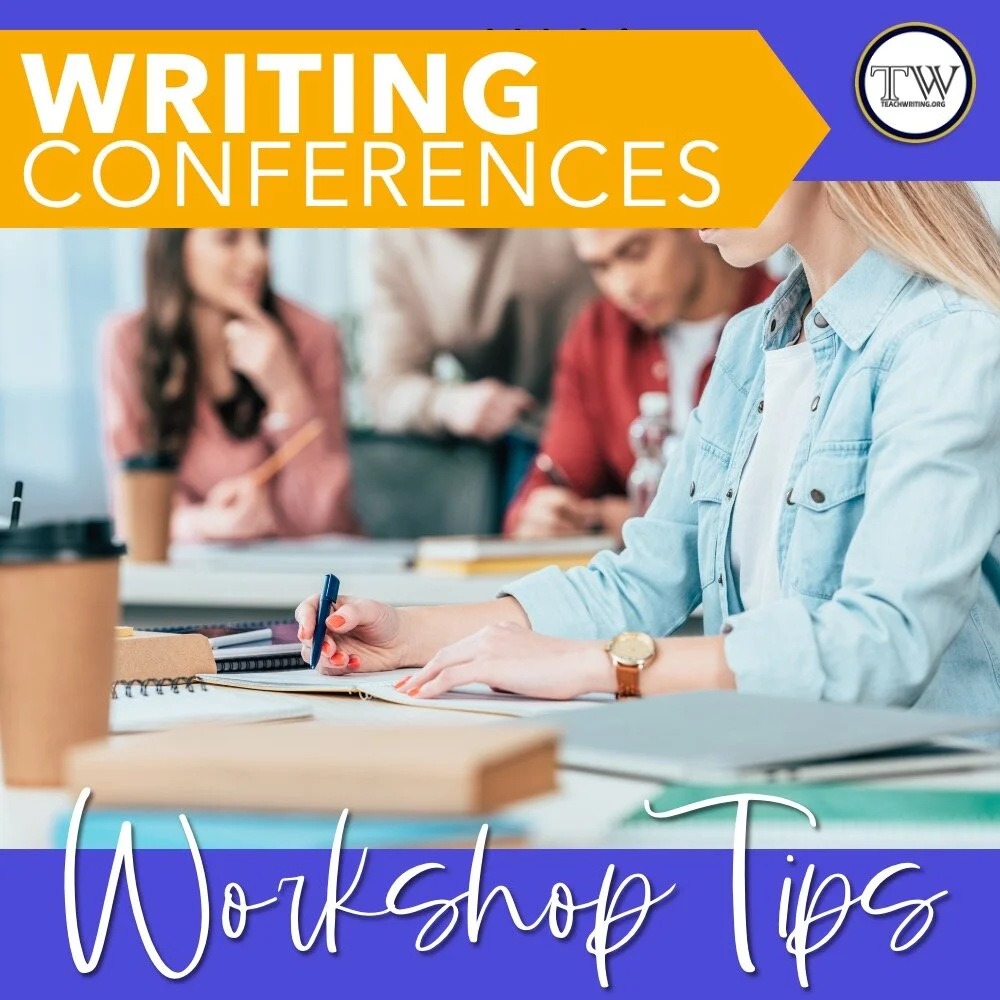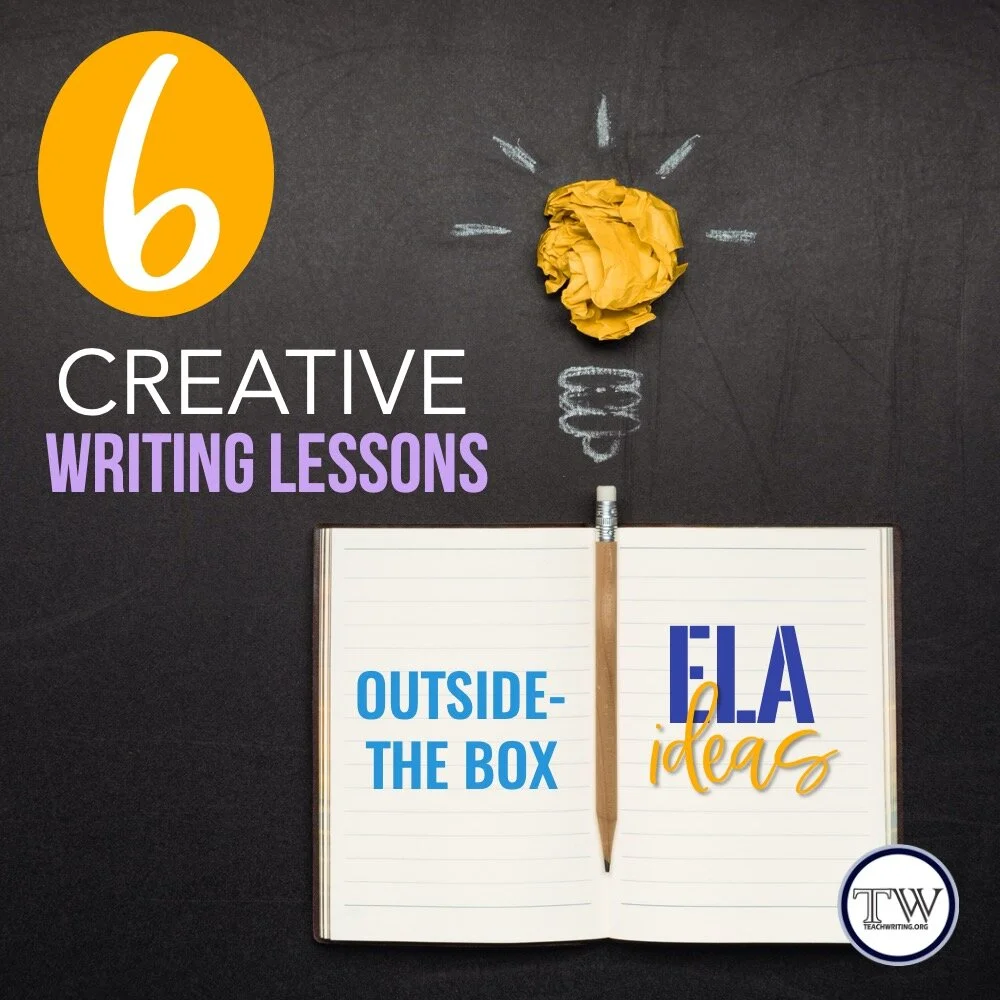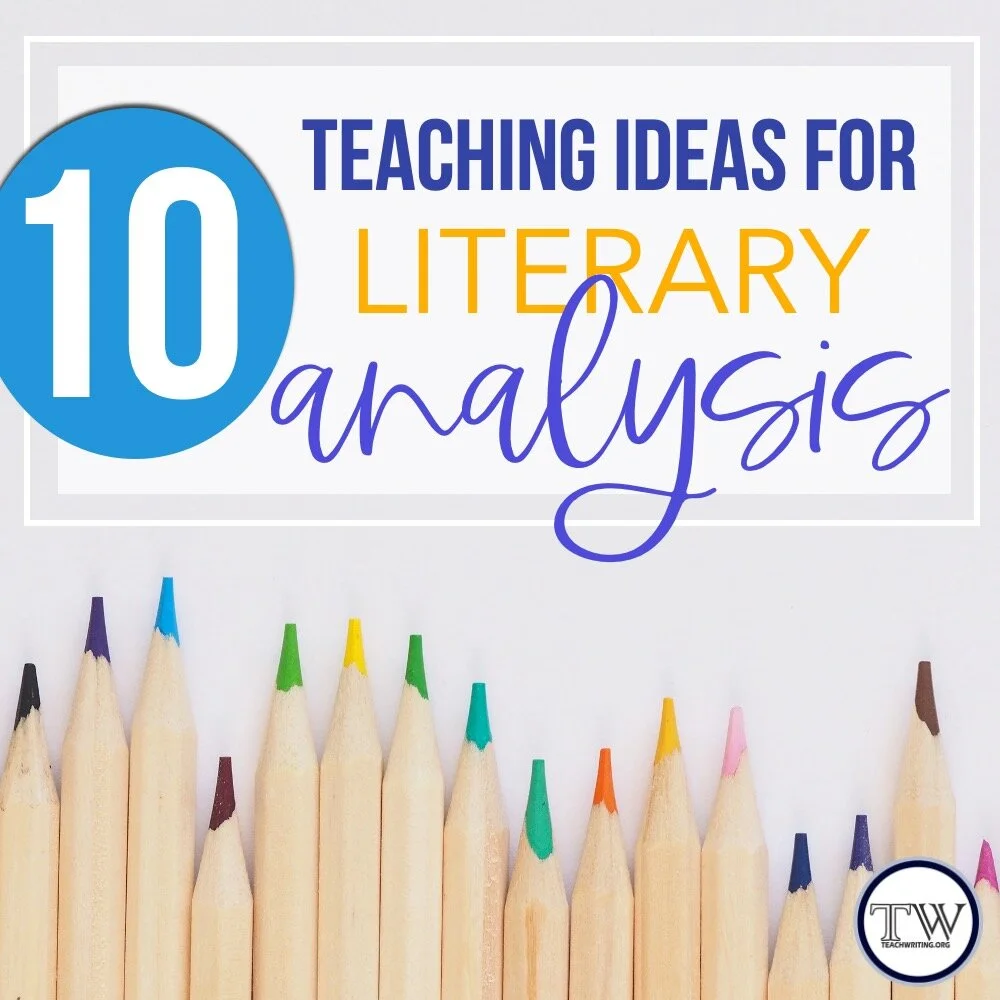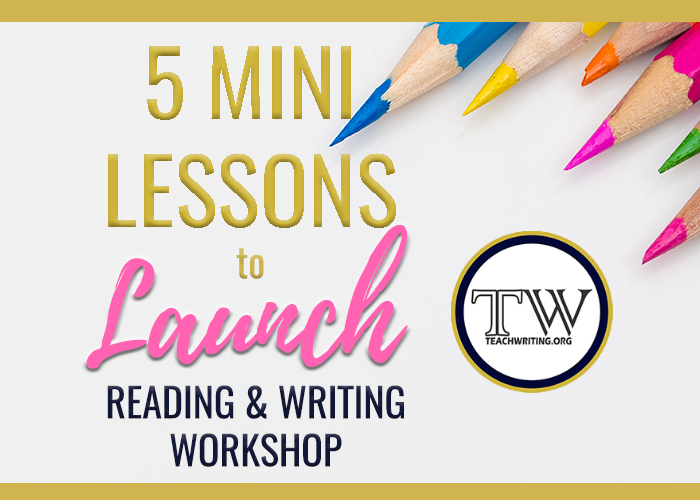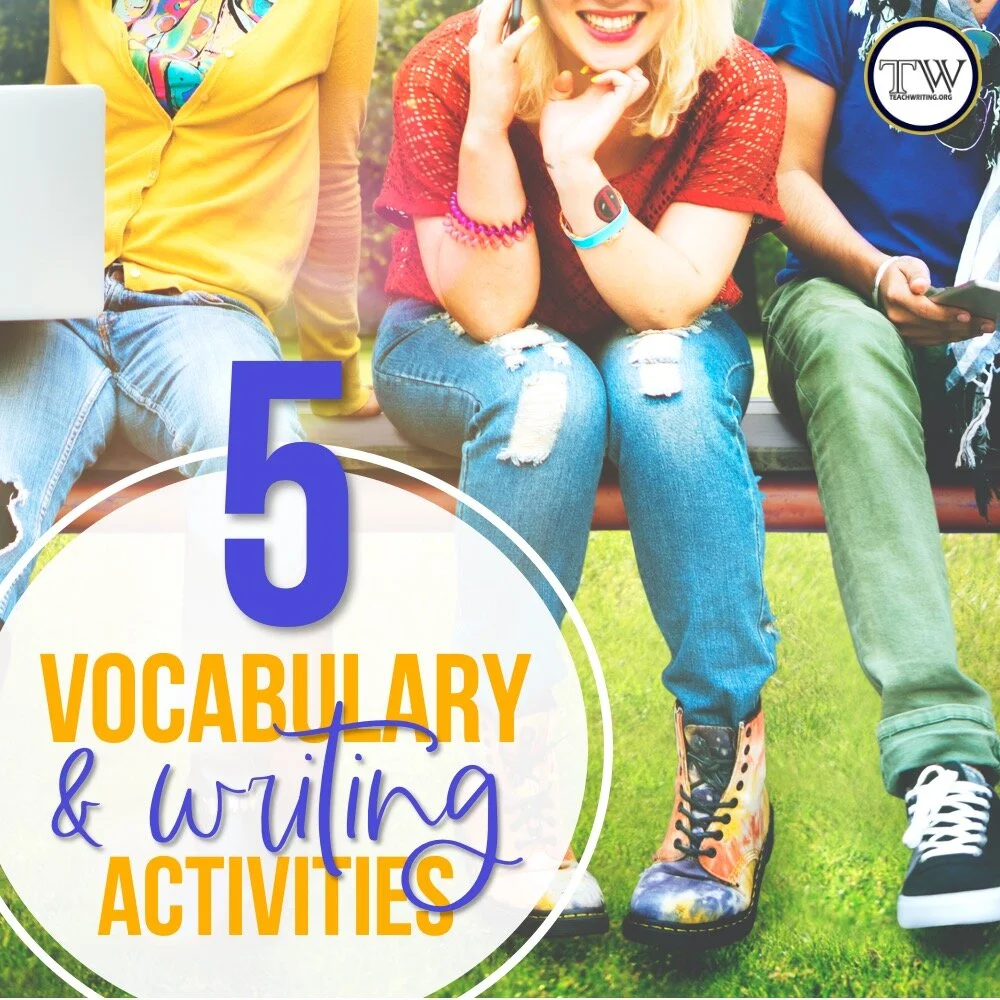How do we take the “encyclopedia voice” (Mariconda) many students come into the classroom having been taught, and turn it into Walt Whitman’s much-lauded “barbaric yawp”?
Read MoreHow can language arts teachers support high school writers? With purposeful feedback and activities, English teachers can structure an environment to grow young writers.
Read MoreTips for running writing workshop conferences in middle school and high school classrooms #WritingWorkshop #MiddleSchoolELA #HighSchoolELA
Read MoreDo your students struggle with citing and embedding quotations within their writing? I feel like I teach, reteach, teach again, remind again, comment again and again within feedback about these same skills… all. Year. Long. My Students tend to struggle with the formula for citing that text evidence correctly. I find that they frequently forget to move that end punctuation to after the citation, and they absolutely love to add the abbreviation for page into that citation. I cannot quite figure out why, but they just want to through the letters ‘pg.’ right in the middle of that parenthetical citation.
Read MoreHow can we teachers add writing to enrich our students’ experiences? With a few ideas, you can teach writing every day with secondary students.
Read MoreBlending textual evidence into writing is a key skill for writing any academic essay. But year after year, I find that high school students still struggle with this skill, creating run-on sentences or fragments instead of complete sentences. I also find that students can sometimes be confused about where to place the blending stem and how to smoothly transition into the quotation.
Read MoreToday I am going to tell you about formal writing! Of course, I write this opening line in jest. When I think about how many times my secondary students have written that exact initial phrase as part of their first line to an essay, a strong Hulk-like desire to rip papers into shreds comes over me. I assure you that I have never actually ripped up a student essay, but I think we can all agree that reading the following sentences turns us all a little Hulk green:
“After you read this, you will agree that…”
“Today I will prove to you that…”
“I am writing about…”
“I think…”
“I feel…”
AGGGGGHHHHHH!!!!!!!!!
Read MoreA roundup of creative and engaging activities for middle school and high school ELA
Read MoreEileen Landay and Kurt Wooton founded The ArtsLiteracy Project to bring arts integration into classrooms around the world, and their book, A Reason to Read, shows how it works and why it’s so powerful.
Read MoreIn this blog post you will find five mini lesson, in the order I would teach them, for your next informational writing unit. These mini lessons have been created based on standards and using common struggles students face with this type of writing.
Read MoreIt’s that time of year when we get to tap into the high-interest season of Halloween and use it to our advantage as writing teachers! Halloween means Edgar Allan Poe, Gothic stories, mysteries, and all things secondary students LOVE! It’s a great time to use the season to our advantage to target essential reading and writing skills while exploring topics that motivate students.
Read MoreRead about 10 literary analysis teaching ideas for middle and high school ELA, including engagement and scaffolding strategies.
Read MoreGetting students to fully grasp the concept of tone and mood can be a truly difficult and daunting task. Students can have a very difficult time separating the mood they feel while reading from the author’s tone while writing. It can be even more challenging for students to think about the mood they wish a reader to feel while they are writing, which can require them to disregard their own tone.
Read MoreConnecting grammar and writing does not mean that teachers pick on student writing. Encourage positive dialogue about grammar with these writing tips.
Read MoreIt’s that time of year once again. School is back in session, and it’s time to take a new group of students through writing workshop to produce pieces of writing that target essential skills. Check out these ideas to get your students started with writing workshop this year!
Read MoreLaunching is about accomplishing two things: teaching routines and getting students excited to do the work of reading and writing. It’s that simple. In this article you’ll find five mini lesson topics that you can use to accomplish both of these goals.
Read MoreHow will you start the school year with writing lessons? An experienced teacher discusses structure and fun for the first quarter.
Read MoreAs a writing teacher, the grading load can be pretty overwhelming. We’ve all carried that tattered folder stuffed with papers to and fro, to and fro, dragging it along to family vacations, coffee shops, and anywhere else where we think we might actually find the time to sit down and give feedback. But ack. Somehow the time never seems to come. And the folder just keeps getting more battered.
Read MoreLooking for meaningful ways to have students practice using new vocabulary words in writing? Check out these 5 unique approaches to engage middle and high school learners. #VocabularyActivities #MiddleSchoolELA
Read More